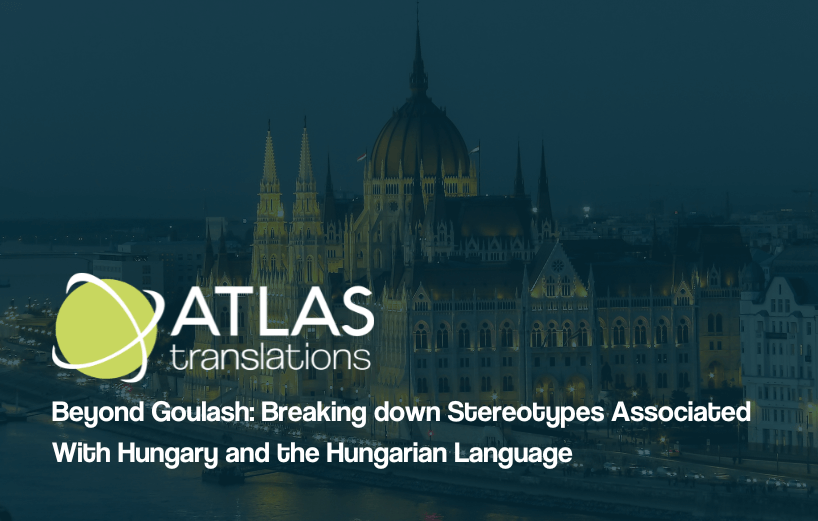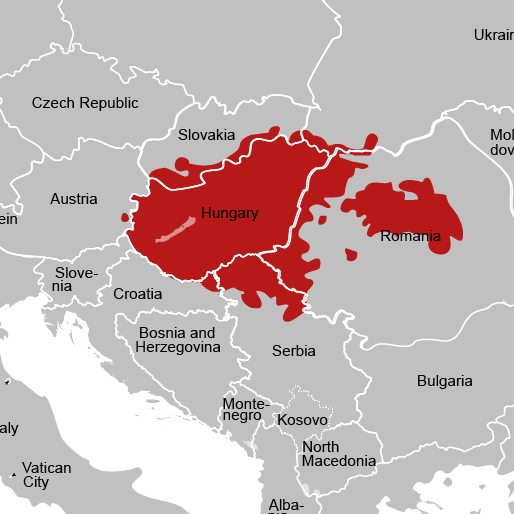Beyond Goulash: Breaking down Stereotypes Associated With Hungary and the Hungarian Language

Goulash, horse riding, and a language considered impossible to learn are what come to mind when Hungary is considered as a destination. However, as we push those stereotypes associated with Hungary aside, there’s so much more to discover in this diverse country, its capital, Budapest, and beyond.
A Language Adventure Awaits
It’s a commonly held misconception that Hungarian is among the most difficult-to-learn languages. Although it is a joy to explore for language enthusiasts and curious minds alike! There are a few aspects that may take time to master, like the use of transitive and intransitive verbs. But how we learn a foreign language is always up to our mother tongue; how we build words and sentences in our native language. It will be different for sure, but isn’t it exciting to delve into the unknown?
The Hungarian alphabet, with its 44 letters, hides a symphony of sounds that will remind you of birds chirping. It has the ability to make any lover of the Romance languages envious. The rising and falling tones add a touch of musicality to every word. The use of grammar provides a playground of possibilities. Sentences can hold twists and turns, depending on the subtle nuances of meaning. There’s no limit to creative expression in the Hungarian language, thanks to its flexible word order and a rich system of cases and suffixes.
Origin of the Hungarian Language
There is an ongoing debate among linguists and historians regarding the origin of the language. What we know for certain is that the Hungarian language is related to the Finno-Ugric languages. That is, it originated from the same ancient language as other languages in the same language family. It has also been proved that these languages are distantly related to the Samoyedic languages, and the two groups were collectively called Uralic languages. There are, of course, many unclear details, but it’s not a unique phenomenon. Note: despite any similarities, don’t expect to be understood in Finland even if you speak Hungarian fluently!
Officially, Hungarian
Hungarian is the only official language in Hungary, with over 10 million native speakers. But, no border is fixed and rigid when it comes to language use. Due to historical connections, Hungarian is spoken in Romania (1.2 million), Slovakia (500,000+), Serbia (300,000), and Ukraine (150,000). Compared to the number of global English speakers, you might think of Hungarian as a “small” language. However, when compared to over 7,000 languages spoken globally, Hungarian is actually a language with a large number of speakers!
Don’t Get Lost in Translation
Hungarian proverbs and idioms are a treasure trove of cultural wisdom. Because of this, a language translation professional will come in handy. It’s better to trust your English-to-Hungarian translation to a translation agency and one of their experienced and qualified native speakers. They will ensure your communication represents the same high quality as every aspect of your business does. Otherwise, you might end up “giving drinks to the mice,” a Hungarian idiom meaning that you may find yourself crying inconsolably. Thankfully, Atlas Translations can help you avoid those potentially embarrassing situations!
Links between Hungary and the United Kingdom
The United Kingdom is among Hungary’s most important trade partners. As of 2018, the UK was the 4th biggest employer in Hungary, with thousands of UK nationals choosing to settle in Hungary. According to Statista.com, the number of Hungarians living in the UK is around 118,000. These numbers indicate that there is a high demand for language services both to and from Hungarian.
Let’s Connect Our Worlds!
As you continue your exploration, remember that learning and using a language is not just about decoding words. It’s about embracing a culture and connecting with people, which is important to building both business and personal relationships. This is why partnering with a translation agency is the key to your success. Atlas Translations is dedicated to assisting companies and individuals in cross-cultural communication with tailored solutions. Why not have a chat with us about your Hungarian language needs?
Moving Forward with Atlas Translations
Atlas Translations has been delivering top-notch translation services for over thirty years.
From certified translation to interpreting services, we have the experience and know-how to produce quality work, whatever the context.
Are you looking to take the next step on your translation journey? Our talented team is always on hand to help.
Give us a call at +44 (0) 1727 812 725 or send us an email at team@atlas-translations.co.uk to find out more today.
Adrienn Gecse is a freelance writer; her nichés are arts, culture, and travel. She offers global content writing services for museums, cultural organisations, travel agencies, artists, and those who work toward positive change. Holding a doctoral degree in Tibetan and Mongolian Studies from Eötvös Loránd University (Hungary), Adrienn also has a master’s degree in African Studies from the “School of Oriental and African Studies” (UK).
Her work history includes the Hungarian National Museum and the Zanabazar Museum of Fine Arts, and she has supported the work of various NGOs as a researcher, writer, and translator in Hungary, the UK, and Mongolia.















